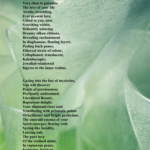Wordpower….Look at these headlines from a story which emerged in the London free newspapers on (October 15th 2010) about an unfortunate person who has had an accident….
Number 1: The morning story from Joel Taylor in the London Metro:
When I saw this story, the word ‘drinker’ jumped out at me and I commented to a colleague that, in my opinion, it gave the wrong impression, conjuring up a picture of someone who has consumed a lot of alcohol or is even drunk. With the current tendency to blame drinkers (i.e.people who’ve consumed alcohol) for accidents which befall them, this didn’t seem to me to be the right tenor: yet ‘drinker’ shouldn’t really have that sense of the derogatory attached to it (and maybe it is only my perception): we all drink something, whether it’s water, coffee, or an alcoholic beverage, yet the term drinker…‘he/she’s a drinker’...what meaning does it convey or imply about a person?
I thought it should say ‘woman’ or ‘customer’ and was pondering the style, which seemed a little impersonal, given that the details of gender are contained in the story, and also the seriousness of the accident.
Number 2: Later in the day, we picked up the Evening Standard and this was the treatment there by Felix Allen:
I was pleased to see this different tone. I know the speed and pressure under which journalists have to operate, especially to get out early morning editions such as the Metro; I know that catchy titles are important and they differ according to the publication – but it is also my view that we have to show compassion and love for people and try to avoid putting them into categories just for expediency and attention. I’m sure it wasn’t intentional, it’s simply an example of how perception works, and how we as human beings make meaning, and again it is my own opinion.
What undertones and subtleties do you notice in words that are used in the media or in common speech, does it affect their meaning, and do you think more discernment would be a good thing?
Metro and The Evening Standard are both free publications distributed in London (Metro in other cities too) on weekdays and serve a great purpose in entertaining and informing the travelling public on their journeys around the metropolis.
Finally – Warm Wishes for a complete recovery to the unfortunate woman injured by the plant pot.








